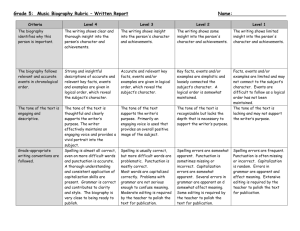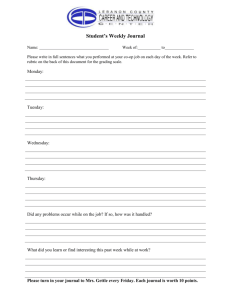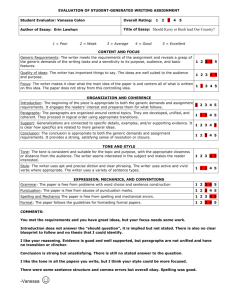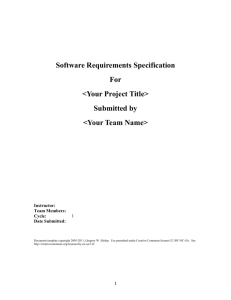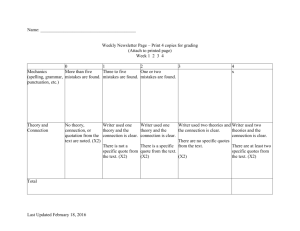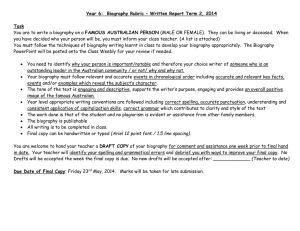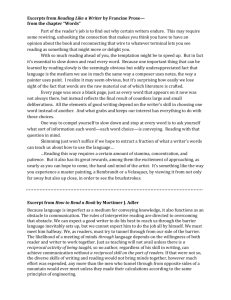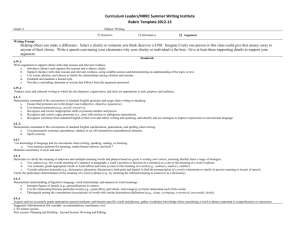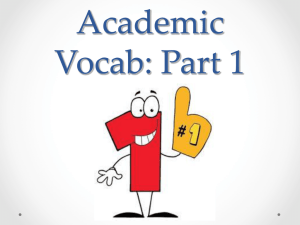Grade 6: Biography Rubric * Written Report
advertisement
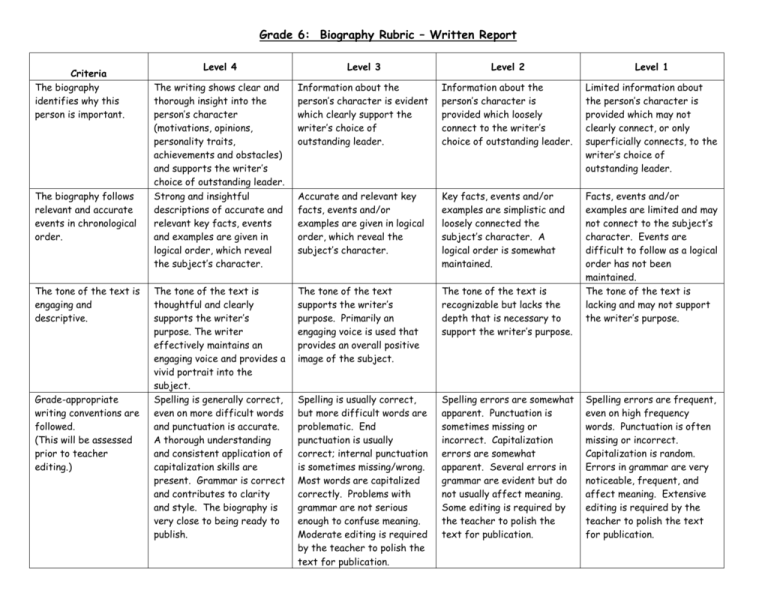
Grade 6: Biography Rubric – Written Report Criteria The biography identifies why this person is important. The biography follows relevant and accurate events in chronological order. The tone of the text is engaging and descriptive. Grade-appropriate writing conventions are followed. (This will be assessed prior to teacher editing.) Level 4 Level 3 Level 2 Level 1 The writing shows clear and thorough insight into the person’s character (motivations, opinions, personality traits, achievements and obstacles) and supports the writer’s choice of outstanding leader. Strong and insightful descriptions of accurate and relevant key facts, events and examples are given in logical order, which reveal the subject’s character. Information about the person’s character is evident which clearly support the writer’s choice of outstanding leader. Information about the person’s character is provided which loosely connect to the writer’s choice of outstanding leader. Limited information about the person’s character is provided which may not clearly connect, or only superficially connects, to the writer’s choice of outstanding leader. Accurate and relevant key facts, events and/or examples are given in logical order, which reveal the subject’s character. Key facts, events and/or examples are simplistic and loosely connected the subject’s character. A logical order is somewhat maintained. The tone of the text is thoughtful and clearly supports the writer’s purpose. The writer effectively maintains an engaging voice and provides a vivid portrait into the subject. Spelling is generally correct, even on more difficult words and punctuation is accurate. A thorough understanding and consistent application of capitalization skills are present. Grammar is correct and contributes to clarity and style. The biography is very close to being ready to publish. The tone of the text supports the writer’s purpose. Primarily an engaging voice is used that provides an overall positive image of the subject. The tone of the text is recognizable but lacks the depth that is necessary to support the writer’s purpose. Facts, events and/or examples are limited and may not connect to the subject’s character. Events are difficult to follow as a logical order has not been maintained. The tone of the text is lacking and may not support the writer’s purpose. Spelling is usually correct, but more difficult words are problematic. End punctuation is usually correct; internal punctuation is sometimes missing/wrong. Most words are capitalized correctly. Problems with grammar are not serious enough to confuse meaning. Moderate editing is required by the teacher to polish the text for publication. Spelling errors are somewhat apparent. Punctuation is sometimes missing or incorrect. Capitalization errors are somewhat apparent. Several errors in grammar are evident but do not usually affect meaning. Some editing is required by the teacher to polish the text for publication. Spelling errors are frequent, even on high frequency words. Punctuation is often missing or incorrect. Capitalization is random. Errors in grammar are very noticeable, frequent, and affect meaning. Extensive editing is required by the teacher to polish the text for publication.

